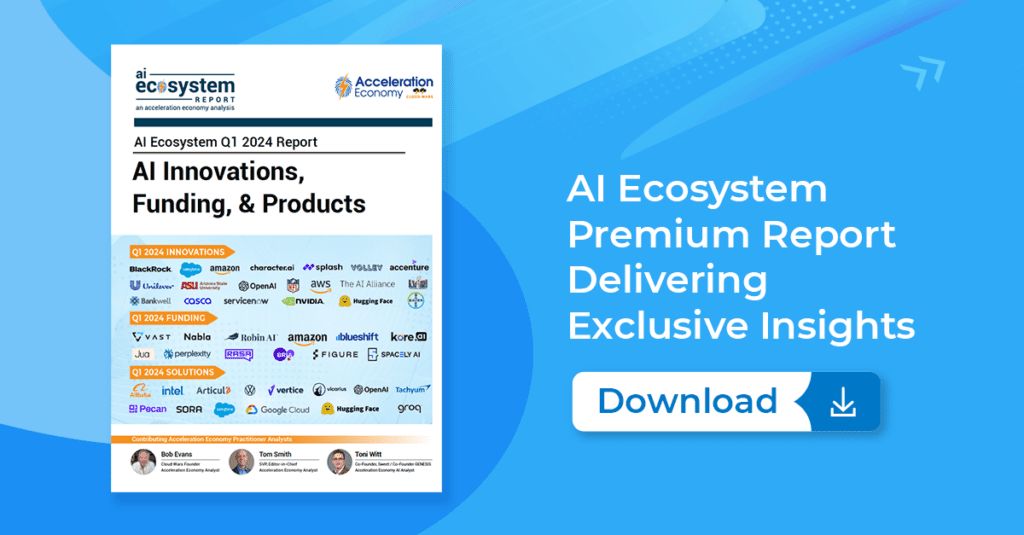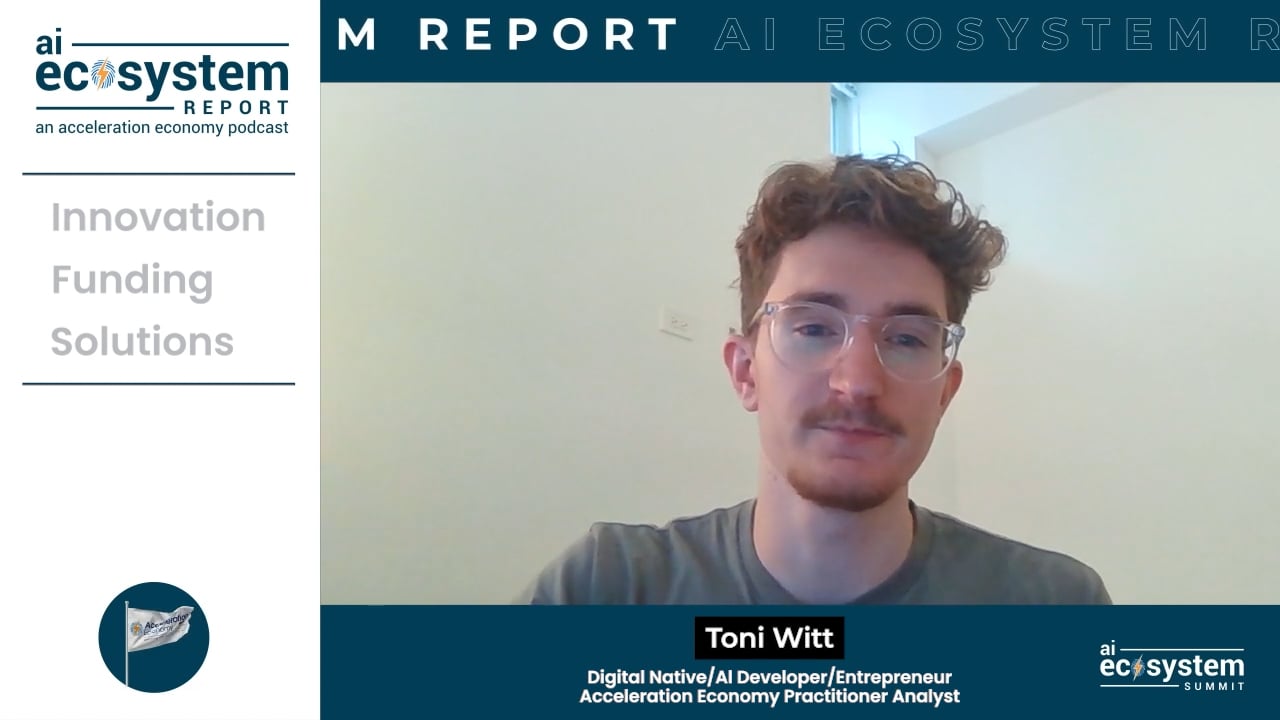Welcome to the AI Ecosystem Report, featuring practitioner analyst and entrepreneur Toni Witt. This series is intended to deliver the timely intelligence about artificial intelligence (AI) you need to get up to speed for an upcoming client engagement or board meeting.

Highlights
Innovation (00:42)

Google has continued developing its LLM, Gemini, as well as its AI offerings. Gemini comes in a few sizes: Gemini Ultra (the largest model), Gemini Pro, Gemini Flash, and Gemini Nano (the smallest).
Gemini Nano actually comes in two sizes itself, one being even smaller than the other. This model is intended to run on mobile devices. It transcribes and summarizes recorded speech on the device so there’s no latency and it doesn’t require WiFi. Because it’s on the user’s phone, it also means no data leaks.
All these models are multimodal, unlike Google’s LaMDA, which is text-only. Because the Gemini apps are multimodal, they can accept PDFs, images, and more. Users can import from Google Drive and it syncs across devices logged into a G-Suite account. There is also a chat interface that’s accessible through web and mobile.
Funding (04:42)

Axelera AI raised $68 million in a series B funding round. The Dutch startup is focused on the AI chip market, which has recently become very crowded with the industry being backed by over $5.3 billion in VC funding. Axelera AI stands out as its niche within AI chips is edge AI computing. The company is deep into the research and technical innovation side.
Solution of the Week (07:09)

A young startup is building an AI therapist in the form of an app called Sonia. The app has a chat interface that users can interact with on a clinical level. It can engage in therapy sessions about common issues, such as sleep problems, depression, and anxiety. It can detect if the user is in a bad mental state and perhaps considering violence or self-harm, in which case the app routes the user to a national hotline for support. Users can choose between voice and text to interact with Sonia.
Developers collaborated with several psychologists and clinicians in creating Sonia. There are currently around 10,000 people on the platform. The startup raised over $3 million in backing from investors. It costs about $20 per month or $200 per year, which is more affordable than physically seeing a therapist and promotes accessibility to those who don’t have access to one.

The AI Ecosystem Q1 2024 Report compiles the innovations, funding, and products highlighted in AI Ecosystem Reports from the first quarter of 2024. Download now for perspectives on the companies, investments, innovations, and solutions shaping the future of AI.

